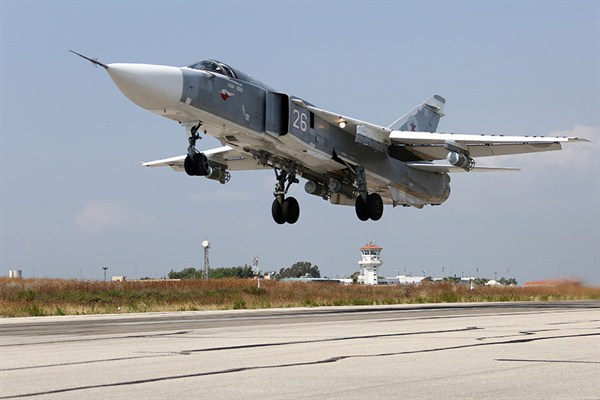In commenting on an article by Josh Marshall about Russia’s military intervention in Syria, I wrote that the best thing the United States has going for it in formulating a response is time. Russia simply does not have the hardware or logistical capacity to project force decisively over the long haul. That doesn’t mean that the intervention won’t have an initial impact. In fact, the introduction of Russian airpower and advisers, combined with Iranian and possibly Russian ground forces, has already shifted the momentum on the battlefield.
This should not come as a surprise. After all, the initial American and coalition interventions in Iraq and Syria against the Islamic State also had an immediate impact, effectively halting the group’s momentum in both countries. Since then the Islamic State has adapted its tactics, allowing it to expand incrementally elsewhere. We should expect to see the same from the Syrian rebel groups the Russians are now targeting.
Russia is also enjoying a considerable advantage that the U.S. did not: With the U.S. targeting the Islamic State—the most capable military adversary on the battlefield—the Russians can focus their operations on helping the Syrian army beat back other armed groups that pose a more immediate threat to the regime’s strongholds in Damascus and along the coast. All it would take, however, to bog down the Russian intervention would be to turn the coalition air campaign down a notch or two. That would be a very cynical and potentially counterproductive scenario, but a very clarifying one for Moscow.

